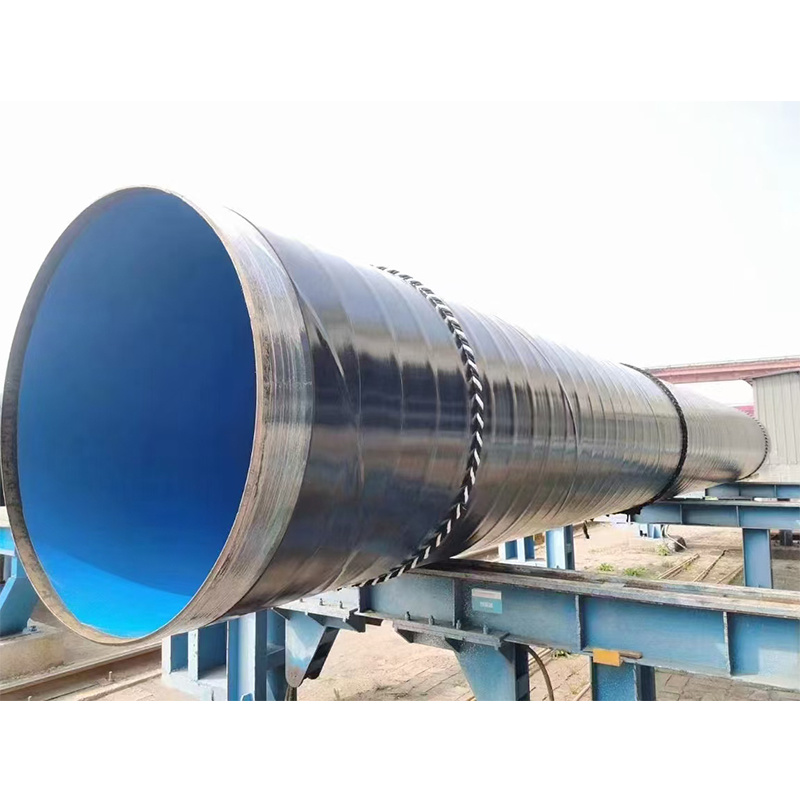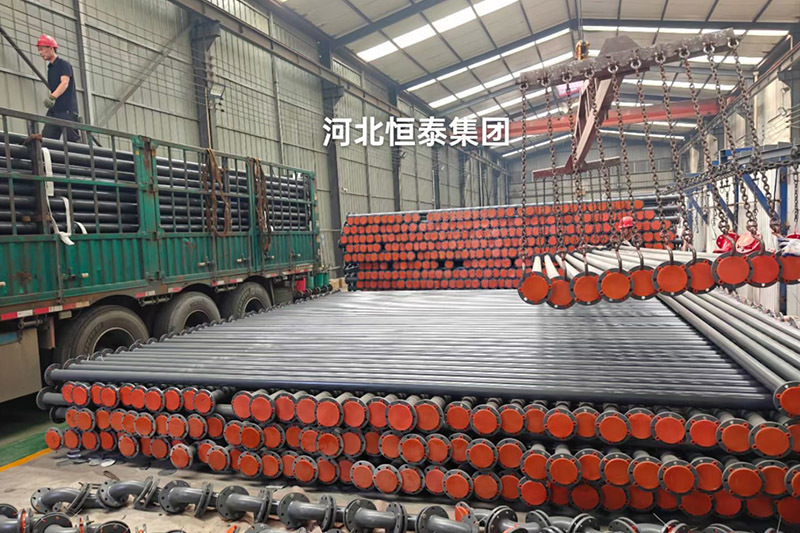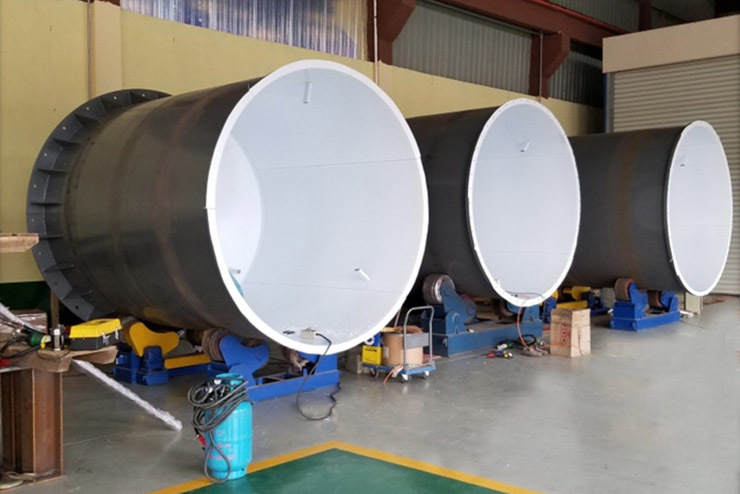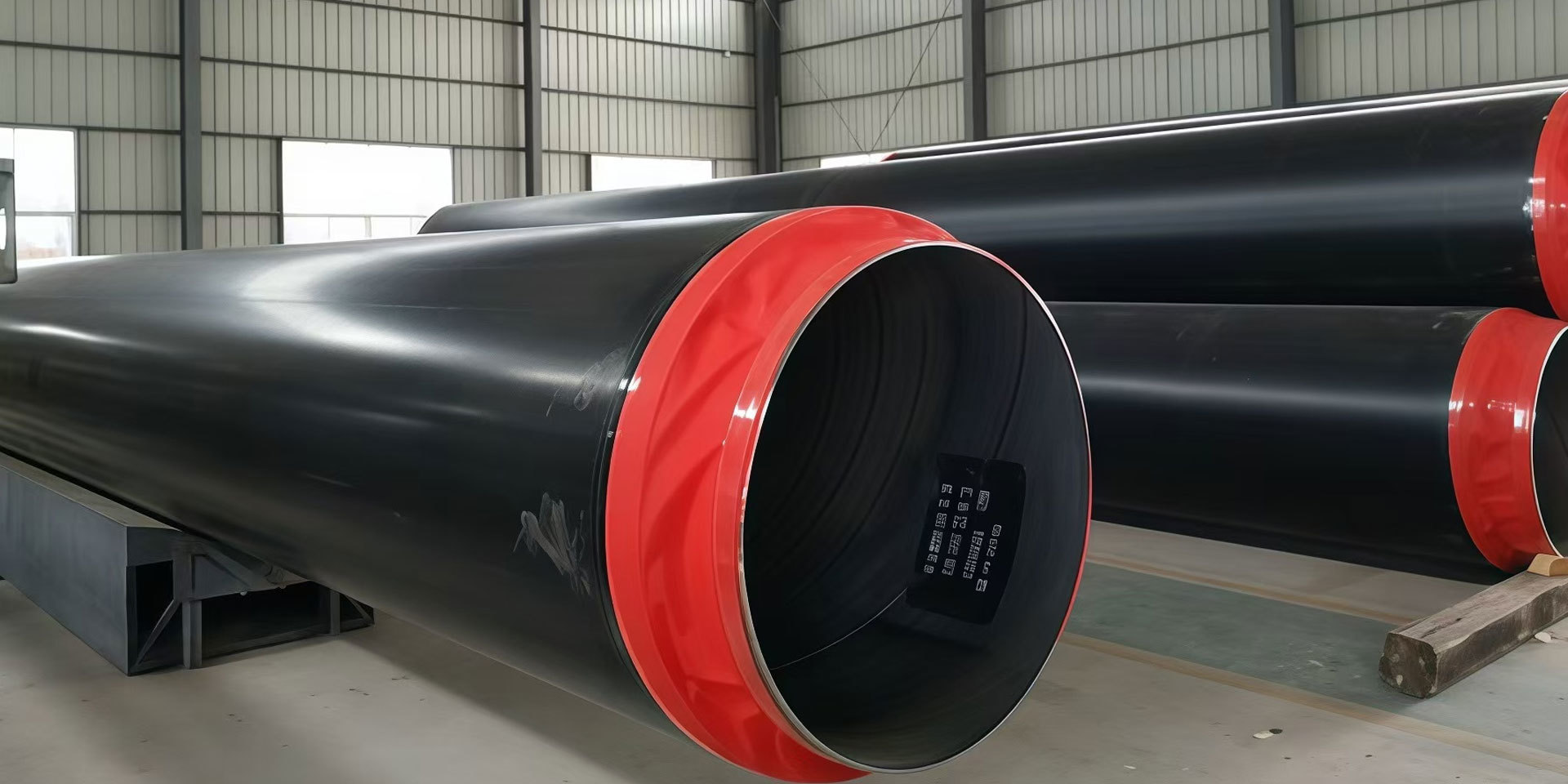Why Insulated Steel Pipes are Essential for Cold Water Systems
Jun 20,2025
Why Insulated Steel Pipes are Essential for Cold Water Systems
Table of Contents
1. Introduction
2. Understanding Insulated Steel Pipes
3. Benefits of Insulated Steel Pipes in Cold Water Systems
4. Thermal Efficiency of Insulated Steel Pipes
5. Corrosion Resistance and Durability
6. Installation Considerations for Insulated Steel Pipes
7. Environmental Impact and Susta
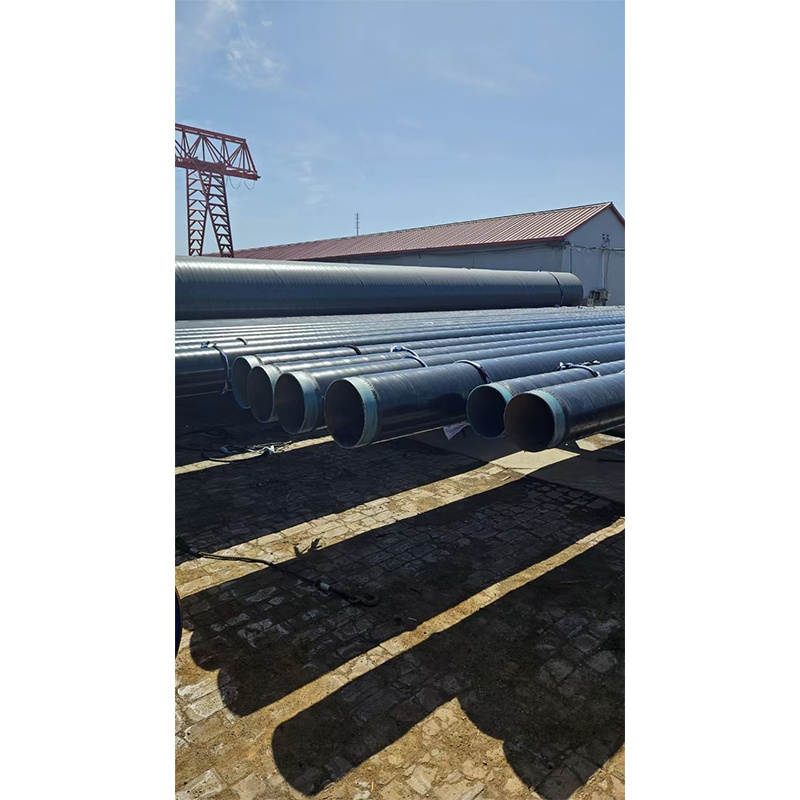
Why Insulated Steel Pipes are Essential for Cold Water Systems
Table of Contents
- 1. Introduction
- 2. Understanding Insulated Steel Pipes
- 3. Benefits of Insulated Steel Pipes in Cold Water Systems
- 4. Thermal Efficiency of Insulated Steel Pipes
- 5. Corrosion Resistance and Durability
- 6. Installation Considerations for Insulated Steel Pipes
- 7. Environmental Impact and Sustainability
- 8. Cost-Effectiveness of Insulated Steel Pipes
- 9. FAQs
- 10. Conclusion
1. Introduction
The construction industry continually seeks ways to enhance efficiency and sustainability. One crucial component often overlooked is the choice of piping materials in cold water systems. **Insulated steel pipes** offer a unique solution that not only ensures optimal temperature control but also provides significant long-term benefits. This article delves into the necessity of insulated steel pipes in cold water systems, exploring their qualities, advantages, and the impact they have on overall system performance.
2. Understanding Insulated Steel Pipes
Insulated steel pipes consist of a steel core combined with an insulating layer that minimizes heat exchange between the internal and external environments. The insulation material, typically made from foam or fiberglass, acts as a barrier against temperature fluctuations.
This design is particularly vital in cold water systems, as it helps maintain consistent water temperatures, reduces energy loss, and prevents condensation, which can lead to corrosion and other structural issues.
3. Benefits of Insulated Steel Pipes in Cold Water Systems
Understanding the benefits of insulated steel pipes can aid decision-makers in selecting the best materials for cold water systems. Here are some of the key advantages:
3.1 Enhanced Temperature Control
The primary purpose of insulation is to maintain the desired temperature of the fluid within the pipes. Insulated steel pipes are designed to minimize heat transfer, ensuring that cold water remains at the required temperature throughout its journey from the source to the endpoint.
3.2 Energy Efficiency
By maintaining cold water temperatures, insulated steel pipes contribute to overall energy efficiency. When systems lose less heat, they require less energy to operate effectively, leading to lower energy bills and a reduced carbon footprint.
3.3 Reduced Condensation
Uninsulated pipes can lead to condensation on surfaces, which may cause issues such as mold growth and structural damage. Insulated steel pipes prevent this problem by maintaining a consistent surface temperature, eliminating the risk of water dripping and pooling in unwanted areas.
3.4 Longevity
Steel, being a durable material, combined with insulation, extends the lifespan of pipes significantly. Insulated steel pipes resist various environmental challenges, ensuring they remain functional over time.
4. Thermal Efficiency of Insulated Steel Pipes
**Thermal efficiency** is a critical factor in the performance of cold water systems. Insulated steel pipes excel in this area due to their design and material properties.
The insulation slows down heat transfer, which means that even in high-temperature environments, the cold water within the pipes remains unaffected. This is particularly important in climates where temperature fluctuations are common, as it ensures consistent water delivery at the desired temperature to consumers.
5. Corrosion Resistance and Durability
Corrosion is one of the primary concerns in piping systems, particularly in cold water systems where condensation can occur. Insulated steel pipes offer superior corrosion resistance due to the protective layer provided by the insulation.
Moreover, steel is inherently strong and durable, making these pipes less prone to damage from physical impacts or environmental factors. This durability means fewer repairs and replacements, ultimately saving costs for contractors and building owners alike.
6. Installation Considerations for Insulated Steel Pipes
When choosing insulated steel pipes for cold water systems, several installation factors must be taken into account:
6.1 Proper Sizing
Ensure that the diameter and length of the insulated steel pipes meet the system’s requirements. Correct sizing is crucial for maintaining optimal flow rates and pressure levels.
6.2 Installation Techniques
Utilizing proper installation techniques minimizes the risk of issues in the future. Professionals should be familiar with the characteristics of insulated steel pipes and how to handle them during installation.
6.3 Maintenance Requirements
Regular maintenance is essential for keeping insulated steel pipes in optimal condition. While these pipes require less maintenance than non-insulated alternatives, periodic checks for insulation integrity and potential damages are recommended.
7. Environmental Impact and Sustainability
Sustainability is a significant concern in today’s construction practices. Insulated steel pipes offer several environmental benefits:
7.1 Energy Savings
As previously mentioned, insulated steel pipes enhance energy efficiency. By reducing energy consumption in cold water systems, these pipes contribute to lower greenhouse gas emissions.
7.2 Recycling and Reusability
Steel is a highly recyclable material. When insulated steel pipes reach the end of their life cycle, they can be recycled, reducing waste and promoting sustainability in construction.
8. Cost-Effectiveness of Insulated Steel Pipes
Investing in insulated steel pipes can lead to significant cost savings in the long run:
8.1 Initial Investment
While the upfront cost of insulated steel pipes may be higher than that of traditional pipes, the long-term benefits justify the investment. The durability and efficiency of these pipes reduce maintenance and replacement costs over time.
8.2 Operational Costs
Lower energy bills resulting from improved thermal efficiency will lead to reduced operational costs for building owners and facility managers.
9. FAQs
What are insulated steel pipes?
Insulated steel pipes are pipes that have a steel core covered with insulation to minimize heat transfer, making them ideal for cold water systems.
Why is insulation important for cold water systems?
Insulation helps maintain the temperature of cold water, reduces energy loss, and prevents condensation, which can lead to corrosion and other issues.
How do insulated steel pipes enhance energy efficiency?
By minimizing heat transfer, insulated steel pipes ensure that cold water maintains its temperature, thus requiring less energy to operate effectively.
What maintenance is required for insulated steel pipes?
While insulated steel pipes generally require less maintenance than non-insulated alternatives, regular checks for insulation integrity and any potential damages are recommended.
Are insulated steel pipes environmentally friendly?
Yes, insulated steel pipes improve energy efficiency, reduce greenhouse gas emissions, and are recyclable, making them a sustainable choice in construction.
10. Conclusion
In conclusion, **insulated steel pipes** are an essential component of efficient cold water systems. They offer a multitude of benefits, including enhanced thermal efficiency, corrosion resistance, and durability. When considering materials for construction, the advantages of insulated steel pipes become clear; from energy savings to sustainability, they represent a wise investment. By choosing insulated steel pipes, contractors and builders can ensure that their cold water systems operate effectively and sustainably, ultimately providing value to their projects and clients.
TAG:
Related Posts
How Customized API 5L 3PE Coated Pipes Enhance Construction Durability
How Customized API 5L 3PE Coated Pipes Enhance Construction Durability
Table of Contents
Introduction to API 5L 3PE Coated Pipes
What Are API 5L 3PE Coated Pipes?
Benefits of Customization in API 5L 3PE Coated Pipes
How 3PE Coating Works to Enhance Durability
Applications of API 5L 3PE Coated Pipes in Construction
Sustainability and Environmental Impact of API 5L 3PE Coate


